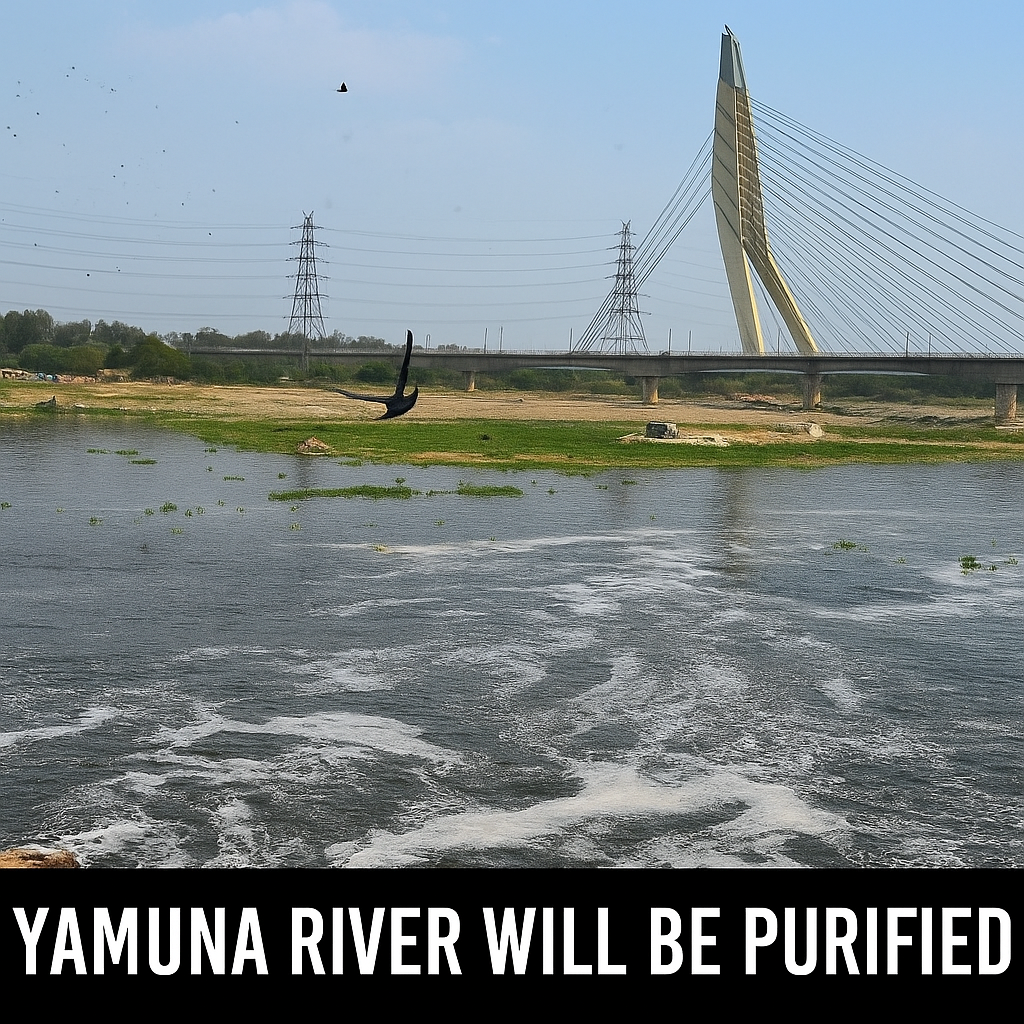In a decisive step towards cleaning the Yamuna River, Delhi Chief Minister Rekha Gupta on Friday launched a comprehensive 45-point action plan focused on environmental restoration and infrastructure improvement. The initiative, aimed at accelerating existing efforts and instituting strict monitoring mechanisms, underscores the government’s renewed commitment to restoring the river’s health.
The announcement came after CM Gupta chaired a high-level review meeting with key officials, including representatives from the Delhi Jal Board (DJB), the Public Works Department (PWD), and Water Minister Parvesh Sahib Singh. During the meeting, the Chief Minister assessed budget allocations, project deadlines, and progress in three critical areas: water supply, sewerage upgrades, and the overall Yamuna rejuvenation strategy.
The Chief Minister emphasized the moral and environmental urgency of the project. “The rejuvenation of the Yamuna is not just a policy commitment—it is a moral duty. A clean and developed Delhi is possible only when every citizen has access to clean drinking water and efficient sewage systems,” she said in an official statement.
The 45-point plan includes targeted measures such as drain treatment, regulation of treated water discharge into the river, improved solid and liquid waste management, and the disposal of dairy and septage waste. It also addresses riverfront development, stormwater infrastructure, enforcement of environmental norms, and public participation.
As per the government’s statement, 303 drainage projects worth ₹8,000 crore are currently underway across the city. These include efforts like de-silting major drains, permanent waterlogging prevention, modernising pump houses, and expanding the stormwater network. Departments involved have been directed to ensure that these projects are completed on time and with high quality standards.
In addition to these, the Delhi government is upgrading eight existing Sewage Treatment Plants (STPs), including major facilities in Okhla, Keshopur, Yamuna Vihar, Nilothi, and Pappankalan. Plans are also in place to construct 40 new Decentralised STPs, 13 of which will be funded under the AMRUT 2.0 scheme.
A key target set under the plan is to ensure all unauthorised colonies are connected to proper water and sewage systems by December 2027. To support this, officials have been instructed to phase out aging pipelines and prevent stormwater from contaminating sewage lines.
Chief Minister Gupta will personally oversee monthly progress reviews to ensure effective implementation and accountability.








